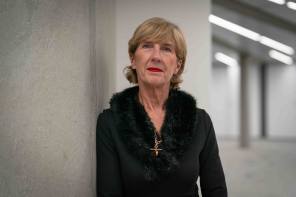

Catherine Stewart is serious about closing the gender savings gap.
As head of individual pension propositions at Scottish Widows, she has been working on promoting greater flexibility in pension products in a bid to encourage a new wave of female savers.
In total, she has spent the past 21 years at Scottish Widows in a variety of proposition and communication roles, leading a number of development teams specialising in investments and individual pensions.
Since April 2017, she has been working on proposition development across a range of individual propositions, including annuities, retirement planning and decumulation. But her drive to encourage women to better engage with their finances started much earlier in her career.
“When I left university, I joined a graduate training programme with Sun Life Assurance Society in Bristol within their customer services area, where I saw first hand what customers were putting into their pensions, and some of the issues they would have,” Ms Stewart says. After moving on to marketing and communications, she realised what the biggest barrier to savings was. “As an industry, we haven’t been very good at communicating with people,” she explains.
Engagement
According to Ms Stewart, the industry communicates with “a very technical hat on”, reinforcing the perception that pensions are incredibly complex. This is discouraging to many women. So, one of the things she has been working on at Scottish Widows is simplifying the communications sent out to customers, particularly through the workplace.
“We’ve found the employer has a big role to play when it comes to engaging people with their pensions and savings, and so we produce a lot of material for employers to give their staff,” she says.
However, she notes the culture of ‘British reserve’ is also to blame for the lack of engagement around pensions and savings.
Hoping to address this, Ms Stewart has become more involved in the Scottish Widows annual Women and Retirement Report – spearheading it the past four years. Now in its 14th year, the report highlights the many challenges faced by women.
She explains the incentive behind the report was “the recognition that if people are to secure futures and a comfortable retirement – but aren’t saving enough – then we must try and quantify that and understand people’s savings habits”.
Each year, Scottish Widows use the report’s findings to support calls for policy changes to make pensions more inclusive.
“We are encouraged by the Department for Work and Pensions’ automatic enrolment review – in particular, lowering the age limit to 18 and scrapping the lower earnings limit in qualifying earnings so that contributions can be paid from the very first pound earned,” Ms Stewart notes.
Emergency cash withdrawals
Speaking at the launch of the Women and Retirement Report 2018, which was held at Westminster on October 31, Ms Stewart said the findings highlight that a lack of flexibility in pensions is actually a barrier to saving.
The report reveals the portion of women saving adequately for retirement is the highest since Scottish Widows began its research in 2004 – at 54 per cent – but this still leaves nearly half not saving for retirement.
According to Ms Stewart, it is perfectly reasonable for someone to save money for a rainy day before they commit more money to a long-term plan such as a pension.
By leveraging the successful auto-enrolment framework, and allowing people limited and penalty-free access to small sums of money from their pots, it would have a significant impact in reducing the likelihood of families turning to unplanned debt, she says.
“Unlike other purchases, there isn’t the same instant gratification with pensions,” she says. “But under our proposals, the benefits of having a pension would include financial resilience of the here and now, not just in later life.”
But, Ms Stewart stresses, only a well-funded pensions framework can then be leveraged to help people in other aspects of their lives. In addition to an increase in contributions rates, she suggests the government must also break the link between the employee and the employer contribution.
“If people have to opt out of their own pension contribution, because of financial hardship, it should not be further compounded by missing out on the employer contribution – no one should ever be too poor to receive the valuable benefit,” Ms Stewart reasons.
Industry initiatives
According to Ms Stewart, the number of different stages in a woman’s career is contributing to a deficit in terms of their pension requirements, and this means it is increasingly important that organisations “practice what they preach”.
For example, she says Scottish Widows provides an up-to-date employer guide, which explains the saving challenges women are more likely to face than men, and details the information employees might need to know to resolve this.
She explains: “I’m really passionate about nurturing the female talent in the organisation, because at the end of the day we need that diversity, thought and talent – it leads to much better results overall.”
Victoria Ticha is a features writer for Financial Adviser and FTAdviser



